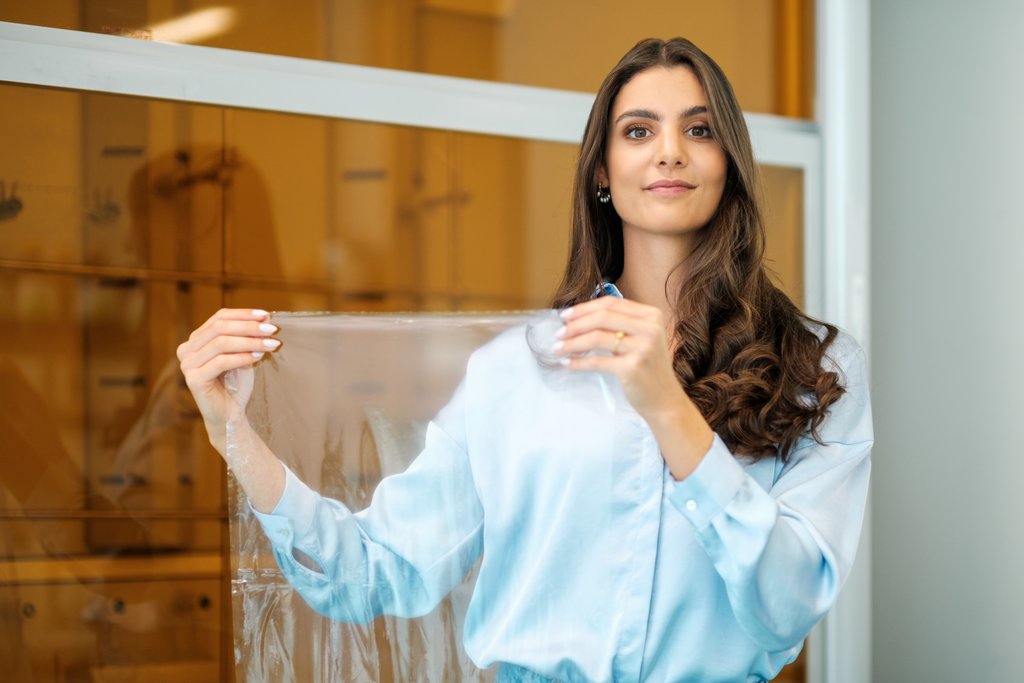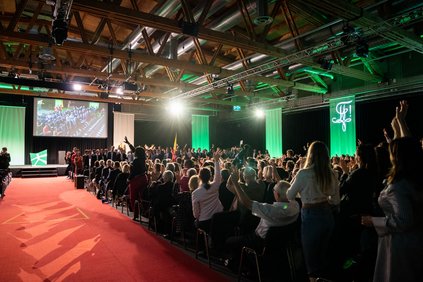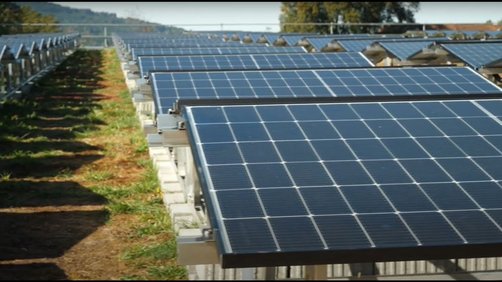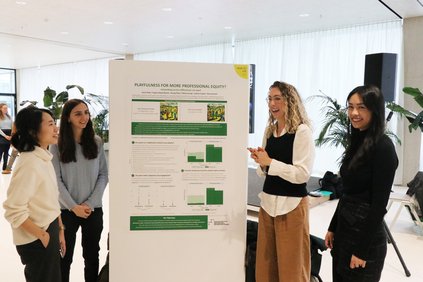Campus - 11.10.2023 - 08:26
HSG student wants to revolutionise the packaging industry with bioplastics made from algae
When she saw a lot of algae on a beach, HSG student Jessica Farda had the idea of producing something from this rapidly renewable raw material. After intensive research and investigation, the 25-year-old founded a start-up that aims to reduce plastic consumption with a film made from algae.

"I still have a passion for algae today. There are tens of thousands of different types of algae, they grow quickly and absorb a lot of CO2," says Jessica Farda. The 25-year-old founded Noriware in 2022 together with Stefan Grieder, an engineer at the Institute of Plastics Technology at the University of Applied Sciences Northwestern Switzerland. The HSG spin-off wants to revolutionise the packaging industry with films made from algae instead of plastic. Farda got the idea on the beach in Mexico: "I had never seen so much algae in one place before. That piqued my interest." So the HSG student in International Relations began researching what could be made from algae. Farda ploughed through numerous scientific studies - until she found out that polymers can be extracted from the cell wall of algae. These are a basic building block of so-called bioplastics.
Farda is studying International Affairs (IA) at HSG. She didn't know much about materials science until she came up with her business idea. "I can be very persistent - and also in my IA studies I learned how to research and take different perspectives," she says. She started experimenting with algae extracts and additives in the kitchen of her student flat in Zurich. In the process some of it got stuck to her jeans and looked like foil when scraped off - thus the idea behind Noriware was born. "The story may sound too good to be true, but it happened that way," says Farda and laughs.
Start-up support programme completed at HSG
Farda also had to be persistent to find supporters for her business idea: She pitched it to various Swiss universities and research institutes. "I was often told that I probably didn't have a clue about the subject without specialist knowledge." However, one of the first supporters was the ETH Department of Materials Science, which, thanks to a scholarship, let students do research on the subject for a few months. At the beginning of 2022, Farda then completed the HSG's Entrepreneurial Talents Programme. "For example, I learned how to present to potential investors and was coached on legal issues. I was also able to build a valuable network in the start-up scene," says Farda.
At the end of 2022, Noriware was officially founded and bears the official HSG spin-off label. The young company plans to launch its first marketable products in the course of 2024. In the spring of this year, Noriware completed a financing round of one million Swiss francs, and currently six employees work for the start-up. "We are currently fine-tuning the final formulation of our product in our laboratories in Lupfig as well as with a partner company in the St.Gallen industry," says Farda. On the one hand, the bioplastic film must be durable; on the other hand, Noriware has the claim that it can be completely composted by private individuals. "We rely on completely natural ingredients in addition to polymers from algae," says Farda. The Noriware film is to be used, for example, in e-commerce or for packaging food.
Circular economy instead of plastic waste
She does not want to demonise plastic, says Farda. It has many advantages in terms of hygiene and usability. "The fact is, however, that plastic is very cheap today and is therefore used everywhere in unnecessarily huge quantities. The plastic waste that ends up in the environment takes centuries to degrade." In addition, a lot of CO2 is produced from petroleum. Algae, on the other hand, bin CO2 and produce oxygen through photosynthesis; they also grow much faster than land plants.
In addition to a packaging film, Noriware is also developing a granulate. With this, companies in the conventional plastics industry could produce bioplastics on their existing machines - thus a sustainable conversion of the industry could be possible quickly. "Algae fit perfectly into a circular economy, which we need to transform our current system into," says Farda. She hopes to contribute to this.
More articles from the same category
This could also be of interest to you
Discover our special topics
















